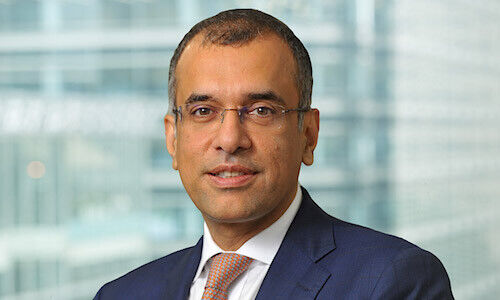Surendra Rosha: «Some Financial Institutions Still Use Fax»
Continued participation by traditional banks in the future economy is important for stability, according to HSBC's Surendra Rosha, but more modernization is required such as the removal of old-fashioned practices like the use of fax machines.
In recent years, many financial institutions globally have been undergoing digital transformation journeys. Material developments have been made across the board to both reduce costs and capture new opportunities in areas like digital payments, blockchain technology, artificial intelligence and more.
But not all are making significant moves to modernize their business. According to research by Boston Consulting Group’s Henderson Institute, less than one-third of the world’s largest banks are investing in ecosystems in a «meaningful way».
«In Asia some financial institutions still use fax machines and ink stamps due to obsolete regulatory standards,» said HSBC APAC co-CEO Surendra Rosha during a panel at the 2023 Hong Kong FinTech Week.
Incompatible Conservatism
The reluctance of some banks to pursue accelerated digitalization is in part due to concerns about risk. There are noteworthy examples readily available ranging from crashed crypto exchanges to cyber theft of digital assets. Still, this is a risk the industry must take, according to Rosha.
«While security is always a concern when implementing new technologies and workflows, this kind of conservatism is incompatible with the way that the evolution is going to happen,» he said. «Banks cannot sit on the sideline while innovation happens and changes the market.»
Banking Stability
But whether some or many banks decide to embark on the digital transformation journey, Rosha is confident that this segment of finance will remain competitive. He named stability as a key differentiator, citing the collapse of Silicon Valley Bank (SVB) as an example.
«From a government or regulator perspective, recent developments have reinforced the importance of banking stability. Risk buffers have their upsides and downsides but when SVB ran into trouble, it was HSBC and other traditional banks that had the cash on hand to step in,» he explained.
Moving forward, the UK operations of SVB will be used as a base for HSBC’s innovation banking services and this will formally be launched in Hong Kong by the end of 2023.
«Model of Co-Existence»
In the future, Rosha believes that there is a «model of co-existence» that will make banks a user of fintech companies’ services and fintechs a user of banks as a platform for their products. On even the potential of being replaced, he remained skeptical.
«Could a purely digital bank or some super app make traditional banks obsolete? I doubt it,» Rosha added.
The Hong Kong FinTech Week is being held from October 30 to November 5 with an estimated 30,000 attendees from over 90 countries.


























